Different perspectives benefit all of society
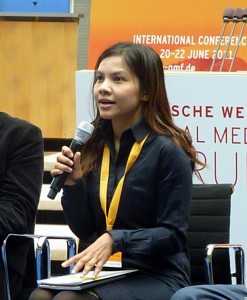 Media rights advocate Supinya Klangnarong from Thailand spoke during a panel discussion on advocacy versus objectivity at this year’s Deutsche Welle Global Media Forum in Bonn, Germany. The three-day conference in June focused on the role of the media in the context of human rights and globalization.
Media rights advocate Supinya Klangnarong from Thailand spoke during a panel discussion on advocacy versus objectivity at this year’s Deutsche Welle Global Media Forum in Bonn, Germany. The three-day conference in June focused on the role of the media in the context of human rights and globalization.
Klangnarong is vice-chair of the Campaign for Popular Media Reform (CPMR), a national NGO working towards the democratization of communication. She is also a board member of the Thai Netizen Network, an independent network of Internet citizens working to uphold cyber liberty in Thailand.
![]() read more
read more
Media’s role in communicating sustainable development
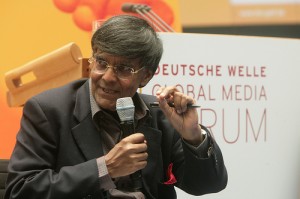 At this year’s Deutsche Welle Global Media Forum, which took place from June 20-22 in Bonn, Germany, sustainable development expert Mohan Munasinghe recommended that the media help spread the word to the world’s elite that it’s in their own interest to limit consumption and allow the poor to grow out of their poverty. In terms of resources, the “more the rich consume, the less there is for the poor,” he said. Otherwise the entire global system is at risk of collapse with unforeseen consequences for everyone.
At this year’s Deutsche Welle Global Media Forum, which took place from June 20-22 in Bonn, Germany, sustainable development expert Mohan Munasinghe recommended that the media help spread the word to the world’s elite that it’s in their own interest to limit consumption and allow the poor to grow out of their poverty. In terms of resources, the “more the rich consume, the less there is for the poor,” he said. Otherwise the entire global system is at risk of collapse with unforeseen consequences for everyone.
As vice chair of the Intergovernmental Panel on Climate Change, Mohan Munasinghe shared the Nobel Peace Prize with Al Gore in 2007. Currently he is chairman of the Munasinghe Institute for Development (MIND) in Colombo, a professor of sustainable development at the University of Manchester in the U.K., a distinguished guest professor at Peking University and honorary senior adviser to the government of Sri Lanka. He is widely recognized as having introduced a framework called sustainomics to make development more sustainable.
![]() read more
read more
Wikileaks: the right to know vs. the right to privacy
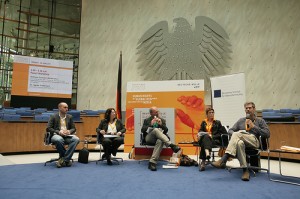
Deutsche Welle Global Media Forum 2011: Leaks, Wikileaks, whistleblower - New challenges for human rights?
This week a year ago, WikiLeaks founder Julian Assange first met with editors from the New York Times, the Guardian and Spiegel magazine to discuss how to investigate and publish hundreds of thousands of classified documents about the wars in Afghanistan and Iraq. The question at the heart of the meeting was how to reconcile the public’s right to know and the right to privacy of the people mentioned in the published logs by WikiLeaks?
Eric Schmitt, senior writer and Washington correspondent for the New York Times, gave an insider perspective on this crucial meeting at Deutsche Welle’s recent Global Media Forum. He says at the time, Mr Assange had not really thought through what impact the release would have for the individuals on the ground – especially in Afghanistan and Iraq, and had not made any plans to censor individual names.
So what responsibilities does the media have when it comes to protecting sources, and protecting people who may be put a risk as a result of leaked information?
Have a listen to the panel discussion between Dr. Agnès Callamard, Executive Director of the NGO ARTICLE 19, Eric Schmitt from the New York Times, Professor Beate Rudolf, Director of the German Institute for Human Rights and Jan Michael Ihl, spokesperson for Open Leaks.
You can also leave your comments within the timeline of the SoundCloud audio file.
W11 – Leaks, WikiLeaks, whistleblower – New challenges for human rights? by dwgmf
Wikipedia – a global treasure?
To some it might sound like a hoax, but Wikipedia is applying for UNESCO World Heritage status. After all the global online encyclopaedia, that has just celebrated its 10th anniversary, gets 40 million visitors a month, is listed as one of the top ten most-visited Web sites, and has archived more than 18 million entries in 279 languages.
Wikipedia is a cultural phenomenon
This week Wikipedia launched a petition to acquire a spot on one of the world heritage lists of the U.N. Educational, Scientific and Cultural Organization (UNESCO).
“Wikipedia is not just a website, just a technology story, but its a cultural phenomenon… its about people coming together and sharing knowledge”, says Jimmy Wales, founder of Wikipedia in an interview with the dpa news agency. Acquiring UNESCO world heritage status he says: “would be a delightful recognition of the accomplishment that all those thousands of people who have been working in Wikipedia. And it would raise awareness for free knowledge”.
![]() read more
read more
How media in the Philippines report on Japan
By Leo Gatdula, Manila
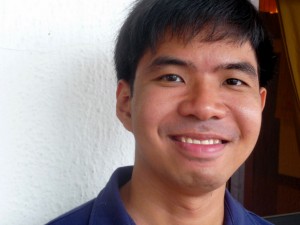 The powerful earthquake that rocked Japan on March 11, 2011 is big news in the Philippines not only because of the extent of the disaster itself, but also because there are about 300,000 Filipinos in Japan.
The powerful earthquake that rocked Japan on March 11, 2011 is big news in the Philippines not only because of the extent of the disaster itself, but also because there are about 300,000 Filipinos in Japan.
The Philippine media have focused their coverage on the plight of Filipinos working in the richest country in Asia. Every day, Filipinos in the Philippines are provided with reports about how much some Filipinos in Japan want to return to the Philippines and how they are coping with the tragedy.
Focusing on Filipino workers in Japan
Overseas Filipino Workers (OFWs) in Japan and other parts of the world send billions of dollars back home, helping keep the Philippine economy afloat. It’s one of the reasons why they’re called “modern-day heroes” in the Philippines.
Thus, an OFW-related event is bound be an emotionally charged issue in the country. Whether it’s Filipino sailors seized by Somali pirates or Filipino workers fleeing violence-torn Libya, an OFW-related event will get big-time coverage in the Philippines.
![]() read more
read more
Nepali media and Japanese disaster
By Shyam Rai, Kathmandu, Nepal
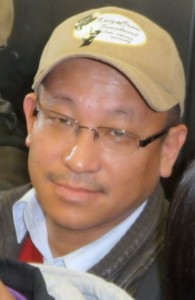 Radio Nepal news editor Shyam Rai writes that the Nepali media covered the disaster in Japan from the very beginning. The first reason for this is that the incident itself was huge and newsworthy.
Radio Nepal news editor Shyam Rai writes that the Nepali media covered the disaster in Japan from the very beginning. The first reason for this is that the incident itself was huge and newsworthy.
The second reason is that sometimes even small incidents taking place in Japan (which might not get space in other countries’ media) are reported by Nepali media because Japan is one of Nepal’s major donor countries and contributes greatly to its development.
At first the media focused primarily on casualties and losses caused by the earthquake and tsunami. Some broadsheet newspapers and radio stations carried the incident on the front page and as a top story respectively whereas some included it in their international segments.
All of them focused on casualties and the destruction followed by damages caused to the nuclear reactors in Fukushima.
![]() read more
read more
Japanese tragedies stir nuclear debate in Indonesia
By Permadi Kencono Wulan
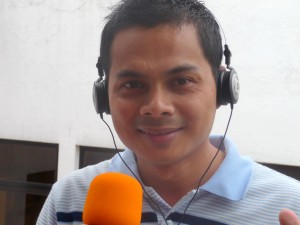 From Indonesia former DW-AKADEMIE trainee Permadi Kencono Wulan writes that almost all of the country’s media have been covering the events in Japan from the moments they began. Focus has been on memories of the tsunami that happened in Indonesia, the strength and fortitude of the Japanese people, the impact of the damaged nuclear reactors and on Indonesian eyewitnesses who had been living in Japan, alongside interviews with celebrities who have lived there.
From Indonesia former DW-AKADEMIE trainee Permadi Kencono Wulan writes that almost all of the country’s media have been covering the events in Japan from the moments they began. Focus has been on memories of the tsunami that happened in Indonesia, the strength and fortitude of the Japanese people, the impact of the damaged nuclear reactors and on Indonesian eyewitnesses who had been living in Japan, alongside interviews with celebrities who have lived there.
News also stirred about Japanese adult film star Miyabi who had gone missing after the tsunami. Much news space in Indonesia was devoted to coverage of the evacuation and the impact of the nuclear reactors at Fukushima.
The impact of an exploding nuclear reactor
Permadi, who is head of new media at RRI Indonesia, highlighted early reports by Indonesia’s Metro TV on the impact of a nuclear reactor that exploded and the possibility of radiation. It communicated how this concerns the world community at large and Indonesia in particular because of the effects of radiation that might spread due to wind, sea water, birds and migrating fish.
![]() read more
read more
Khmer coverage of Japan’s tsunami
By Raksmey Meas
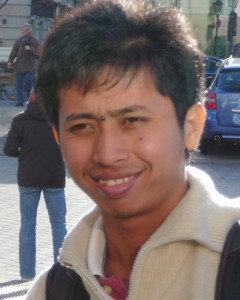 Raksmey Meas, assistant lecturer at the Department of Media and Communication at the Royal University of Phnom Penh, reports that Japan’s catastrophe involving the recent earthquake and subsequent tsunami has yet again taken center stage in the world media’s attention.
Raksmey Meas, assistant lecturer at the Department of Media and Communication at the Royal University of Phnom Penh, reports that Japan’s catastrophe involving the recent earthquake and subsequent tsunami has yet again taken center stage in the world media’s attention.
Particularly in Cambodia, news related to Japan and its disaster racked up on front pages for more than a week following the initial shock on March 11th.
Regarding the focus of Cambodian media on this tragedy, news angles seem to be anything on the updates of the situation – death toll, possible nuclear explosion and rescue efforts, etc.
![]() read more
read more
Japan through the news lens of Bangladesh
By Taufique Ahmed, Dhaka, Bangladesh
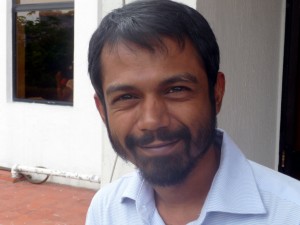 Bangladesh is shocked by what has happened in Japan. People here have closely followed the news to get the latest updates from newspapers, TV, radio and online.
Bangladesh is shocked by what has happened in Japan. People here have closely followed the news to get the latest updates from newspapers, TV, radio and online.
It’s very tough for the media to handle what’s happening in Japan, as there is also another big issue that the people of Bangladesh worry about very much. Many people here are still taken aback by the latest events in Libya, because many Bangladeshis live and work there and have now become victims of the uprising in this North African country.
Japan's tsunami and earthquake are still important news in Bangladesh, as this country is also one of the sufferers of climate change. Nonetheless, Japan's nuclear crisis is also getting attention in the newspapers and at TV and radio stations here as the situation worsens.
![]() read more
read more
Asian media coverage of Japan in crisis
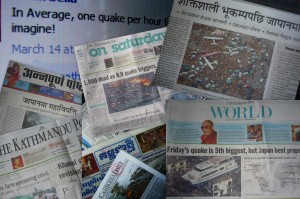 Recent events in Japan shocked the world. The magnitude 9.0 earthquake that hit on March 11th and the tsunami and nuclear disaster it triggered have been top developing stories for media everywhere. But the focus and style of reporting differ from one country or region to the next.
Recent events in Japan shocked the world. The magnitude 9.0 earthquake that hit on March 11th and the tsunami and nuclear disaster it triggered have been top developing stories for media everywhere. But the focus and style of reporting differ from one country or region to the next.![]() read more
read more




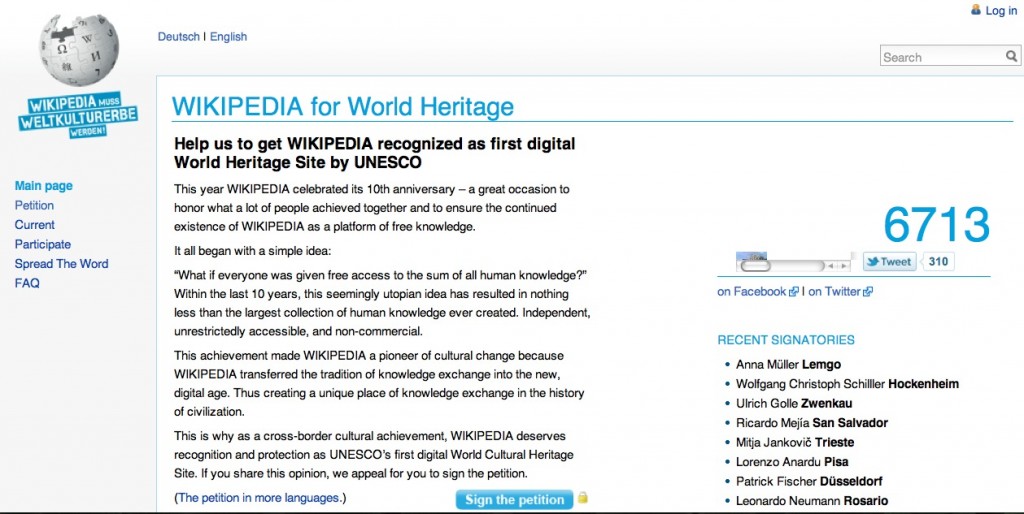




Feedback